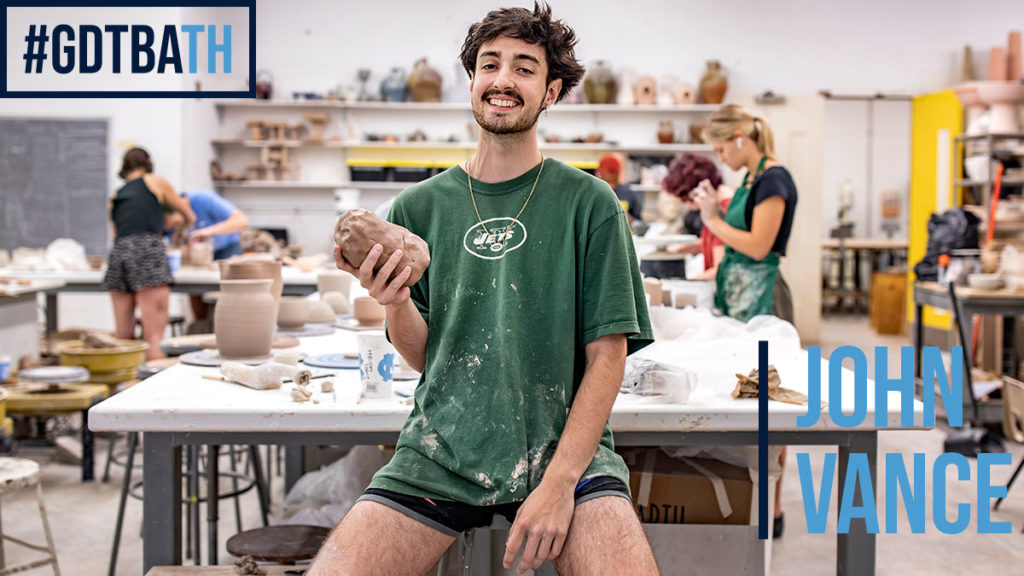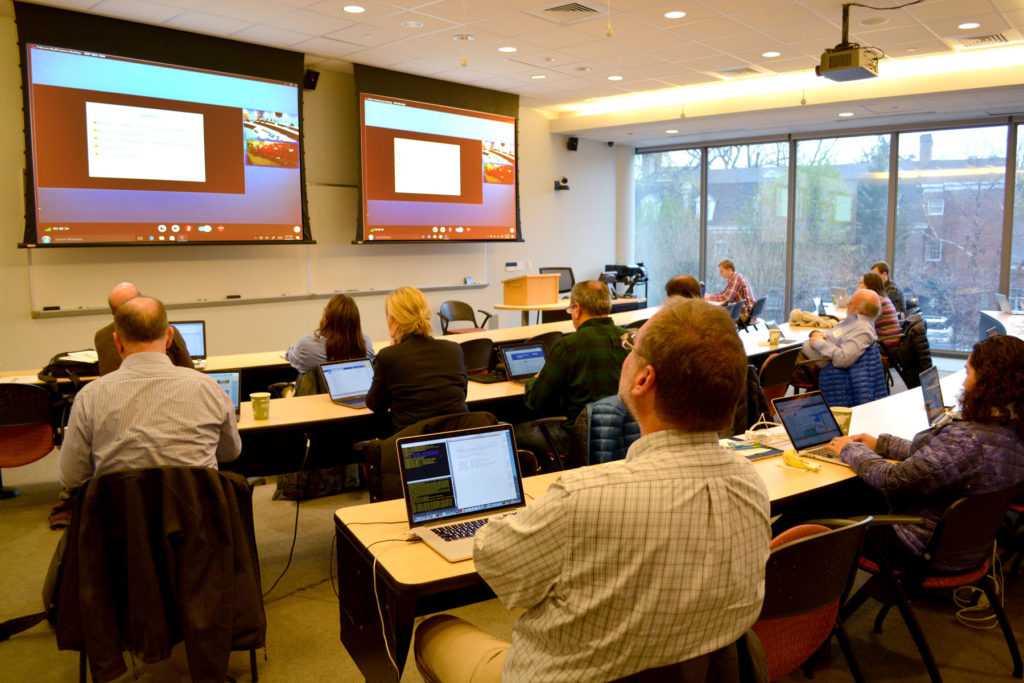Junior Allison Ruvidich spent a summer researching the life and contributions of Elizabeth Lay Green, the wife of beloved playwright Paul Green. She found that Elizabeth was an accomplished poet and playwright herself; she wrote the first play performed by the Carolina Playmakers. Yet her historical contributions are not well-known or celebrated.

For junior English and classics major Allison Ruvidich, an assignment for her “Approaches to Drama” class turned into something far greater — a desire to uncover the life of a Carolina playwright whose contributions were overshadowed by the achievements of her more famous husband.
While initially looking for information on Twelfth Night for a research paper, Ruvidich repeatedly stumbled across the names Elizabeth and Paul Green while searching through historical documents about the Carolina Playmakers. Intrigued, she decided to dive deeper.
She applied for a Summer Undergraduate Research Fellowship (SURF) from the Office for Undergraduate Research and spent last summer researching the life of Elizabeth Lay Green, the wife of Carolina playwright and faculty member Paul Green. Although Elizabeth’s accomplishments were largely unremembered, her contributions to the University are significant, Ruvidich found.
Elizabeth Lay attended UNC from 1917-1920 — a time when less than 20 women were students at the University. She received both an undergraduate and a master’s degree from UNC, and was considered a gifted playwright by Frederick “Proff” Koch, a dramatic literature professor who founded the Carolina Playmakers. She was the author of the first play — When Witches Ride — performed by the theater troupe. Aside from playwriting, Elizabeth was also a writer for The Daily Tar Heel. Elizabeth later married Paul Green, who was an up-and-coming playwright. As Elizabeth settled into her expected duties as a wife, she took more of a clerical role as her husband’s fame rose. Although she contributed to Paul’s success as a writer, many of her accomplishments, including the poetry that she wrote for her husband’s plays, were historically erased.
Inspired to find more information about the life of Elizabeth, and her contributions to the University, Ruvidich explored the Paul Green Collection in Wilson Library, where she discovered letters written by both Paul and Elizabeth, interviews that Elizabeth conducted with her daughter, and newsletters that Elizabeth wrote for her family. According to Ruvidich, Elizabeth’s documents are reflective of important moments in our state’s history, as she wrote about topics such as the lives of women in the South and World War I.
Ruvidich would love to see others realize the value of Elizabeth’s story.
“This project was meaningful to me because it was about the history of my school,” she said. “Elizabeth Lay Green was an English major, like me. In terms of recognition, she deserved better than what she received.”
While it might seem daunting to take on a big research project, Ruvidich said she found much support from faculty and UNC librarians.
“So many people want to help you, and they believe in your research,” she said.
Ruvidich’s advisers on the SURF project were James Leloudis, professor of history and associate dean for Honors, and Cecelia Moore, university historian. Moore, who is also project manager of the Chancellor’s Task Force on UNC-Chapel Hill History, did her doctoral research on the Carolina Playmakers and has published a book about the early years. She assisted Ruvidich in finding documentation on Elizabeth.
“Allison is a self-motivated and thoughtful student, Moore said. “She cares about her research subjects as people and is curious about what happened to them.”
Ruvidich said she is indebted to the Office for Undergraduate Research for supporting her project. She also had the chance to interact with faculty, who took her work seriously and provided her with helpful feedback.
She wants to light a spark to encourage all students to get involved in undergraduate research.
“Whether it’s an internship, an interview or a career, you never know what doors research will open,” she said.
By Lauryn Rivers ’21




